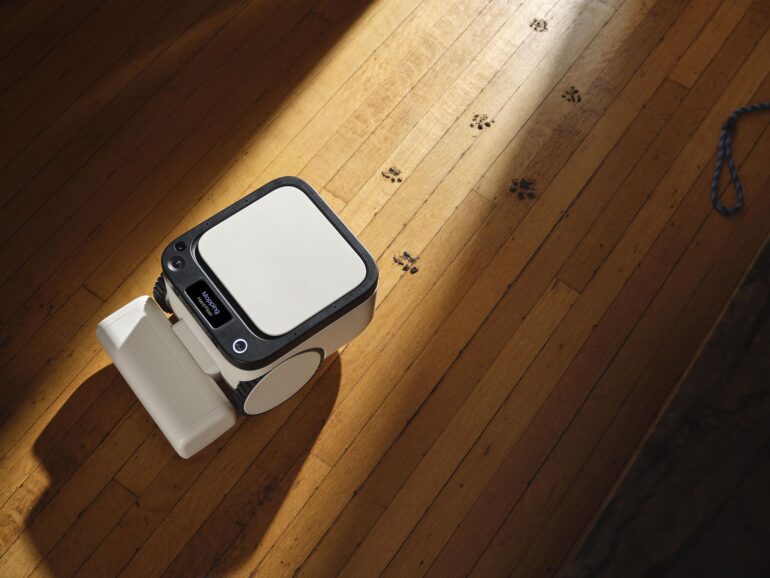TL;DR:
- Matic, a robotics startup led by Navneet Dalal, is developing advanced robot vacuums for home cleaning.
- They prioritize privacy by ensuring data processing and storage occur on the device, not in the cloud.
- Matic’s fully autonomous robot offers precision mapping and navigation using camera-based AI.
- The company secured $29.5 million in funding, with notable tech figures leading the investment.
- Matic’s robot vacuum is priced at $1,795, with a limited-time offer at $1,495, and offers a $15-per-month membership.
Main AI News:
In a world where data privacy is a growing concern, Matic, a robotics startup founded by Navneet Dalal, is taking a unique approach to revolutionize the way homes are cleaned. With a background in computer vision and robotics, Dalal and his team are developing robots that aim to clean homes “more like a human.” The recent announcement of Matic securing $29.5 million in funding, including a $24 million Series A round, is a testament to the potential of their innovative technology. The funding round was led by tech luminaries such as Nat Friedman of GitHub, John and Patrick Collison of Stripe, Adam D’Angelo of Quora, and Jack Dorsey, the co-founder of Twitter and Block CEO.
Matic’s journey began in 2017 when Dalal, along with co-founder Mehul Nariyawala, recognized a gap in the indoor robotics industry. They realized that there was a lack of high-fidelity 3D maps for precise navigation within indoor spaces. Just as autonomous vehicles rely on GPS and Google Street View Maps, fully autonomous indoor robots require a detailed understanding of their location in constantly changing indoor environments. To address privacy concerns, latency issues, and the dynamic nature of indoor spaces, Dalal and Nariyawala concluded that on-device mapping capabilities were essential.
While Matic initially focused on building robot vacuums, their goal was not to compete with existing players in the market like iRobot or Ecovacs. Instead, they saw floor-cleaning robots as a means to thoroughly map indoor spaces, leveraging their need to cover every inch of surfaces. This strategic decision proved to be wise, as evidenced by Amazon’s $1.7 billion acquisition of iRobot, highlighting the value of indoor map data.
Years of research and development culminated in the creation of the Matic vacuum, a fully autonomous robot equipped with camera-based AI for mapping and navigation. With a remarkable precision of 1.5 centimeters, it can recognize objects and seamlessly switch between vacuuming and mopping based on its observations. What sets Matic apart is its ability to continuously learn and adapt to users’ cleaning preferences, all while ensuring privacy.
One of Matic’s standout features is its commitment to data privacy. Unlike some competitors, all processing takes place on the robot itself, using hardware equivalent to an iPhone 6. Mapping and telemetry data are saved locally, not in the cloud, unless users choose to opt-in for data sharing. Matic can even function without an internet connection, relying solely on a smartphone paired over a local Wi-Fi network.
Moreover, the Matic vacuum boasts an array of voice commands and gestures for precise control. It can seamlessly resume cleaning tasks if interrupted, making it a convenient addition to any household. Additionally, it intelligently prioritizes areas for cleaning based on factors like the time of day and the presence of nearby rooms and furniture.
While some competitors rely on lasers or lidar for navigation, Matic insists that its camera-based approach can achieve the same results. By vertically integrating and hyper-optimizing its codebase, Matic aims to deliver an affordable robot that offers full autonomy.
However, this cutting-edge technology comes at a cost. The Matic robot starts at $1,795, with a limited-time discounted price of $1,495 during preorders, along with an optional $15-per-month membership that covers hardware upgrades, repairs, maintenance, and extends the warranty. In comparison, iRobot’s most expensive vacuum is priced at $1,399, and a high-end rival, the Roborock, is priced at $1,600.
Despite the potential and promises of Matic’s technology, the home robotics industry carries uncertainties and risks. Other robot vacuum startups have faced challenges and even ceased operations. Yet, Dalal and Nariyawala remain confident in Matic’s ability to succeed. With a modest team of around 60 people, they are already planning a new line of robotics products, aiming to make fully autonomous indoor robots a ubiquitous presence in our daily lives.
Conclusion:
Matic’s approach to privacy-conscious, fully autonomous home cleaning robots has the potential to disrupt the market. With a strong focus on data security and advanced mapping capabilities, they are well-positioned to meet the demands of consumers looking for efficient and private cleaning solutions. As the company plans to expand its product line, it is poised to compete with both existing vacuum giants and emerging players in the home robotics industry.

